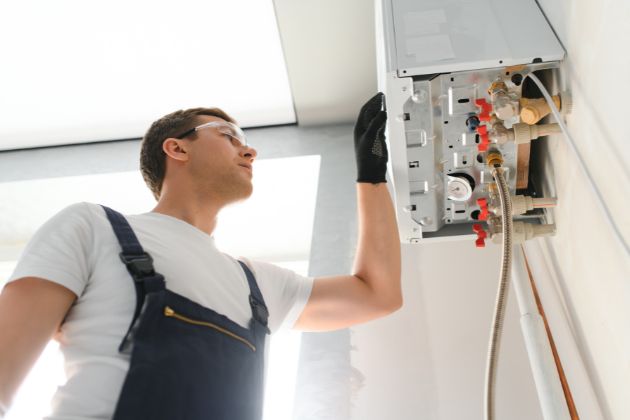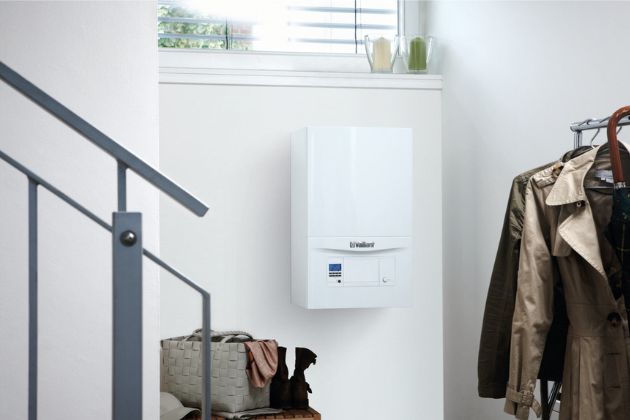Do Boiler Installations Require A Power Flush?
When it comes to fitting a new boiler, many homeowners overlook an important step that can significantly impact how efficiently their system performs: the power flush. If you’re preparing for a new boiler installation, you may be wondering whether this process is necessary. In short, while not always mandatory, a power flush can be one of the best ways to protect your new investment and ensure your heating system runs at peak performance from day one.
Preparing Your Heating System for a New Boiler
Checking for Sludge and Corrosion
Sludge forms when rust and debris build up inside your system. It often settles at the bottom of radiators, causing cold spots and uneven heating. A quick inspection by an engineer can reveal if your system needs cleaning before a new boiler is fitted.
The Risks of a Dirty System
Connecting a new boiler to a dirty system can cause immediate problems. Sludge and rust can block the heat exchanger and pump, leading to poor performance and possible damage. It can even void your boiler’s warranty if water quality doesn’t meet manufacturer standards.
How a Power Flush Helps
A power flush removes harmful deposits using high-pressure water and cleaning chemicals. The process clears blockages, restores proper circulation, and ensures heat is evenly distributed. After flushing, clean water and inhibitors are added to protect against future build-up.
Long-Term Advantages
Cleaning your system before installing a new boiler improves efficiency, reduces wear and tear, and keeps your heating consistent. It’s a simple step that helps your new boiler last longer and work more efficiently throughout the colder months.
When a Power Flush Is Recommended
Cold Spots on Radiators
If your radiators heat unevenly or have cold areas, especially at the bottom, this is often a sign of sludge build-up. The thick sludge restricts the flow of hot water through the system, meaning your boiler must work harder to push heat around your home. A power flush clears out this debris, allowing radiators to heat evenly again.
Replacing an Older Boiler
When fitting a new boiler onto an older system, a power flush is almost always recommended. Older systems tend to have years of rust, limescale, and corrosion built up inside. Without cleaning, this contamination can circulate into your new boiler and damage its delicate components, such as the heat exchanger and pump, potentially shortening its lifespan.
Dirty or Discoloured Water
If the water drained from your system is brown, black, or cloudy, it’s a strong indicator of internal corrosion and sludge. Clean water should appear clear or slightly tinted, not murky. Draining this contaminated water and replacing it with fresh, treated water after a power flush ensures a cleaner and more efficient system.
Noisy Radiators or Pipework
Gurgling, banging, or clunking noises from your radiators and pipes usually mean there’s trapped air or debris inside. These blockages reduce heat circulation and place unnecessary strain on your boiler. A power flush helps eliminate these obstructions, restoring quiet and efficient operation.
Benefits of a Power Flush Before Boiler Installation
Improved Efficiency
With clean water flowing freely through your system, your new boiler doesn’t need to work as hard to heat your home. This means faster warm-up times, consistent temperatures, and lower strain on key components.
Extended Boiler Life
Sludge and debris are among the leading causes of early boiler failure. By removing them before installation, you reduce the risk of corrosion, leaks, and costly repairs, helping your new boiler last longer.
Lower Energy Bills
When your heating system runs efficiently, it uses less energy to reach your desired temperature. This translates to noticeable savings on your heating bills, especially during the colder months.
Enhanced Reliability
A clean system means fewer breakdowns and less chance of blockages. Your boiler can operate smoothly and safely, giving you consistent heating performance and peace of mind year-round.
Professional Assessment from Qualified Heating Engineers
Not every system requires a power flush, but it’s crucial to have your setup assessed by experienced heating engineers. They’ll inspect the system’s age, water quality, and radiator performance before making a recommendation. If a full power flush isn’t necessary, they may suggest a chemical clean or filter installation instead to keep your system protected.
Keep Your Heating System Running Efficiently in Storrington, Horsham, Pulborough, Billingshurst, and Across West Sussex
Pipeline Plumbing Services offers expert boiler installations and professional system cleaning to ensure your new heating setup runs efficiently and safely. Our experienced heating engineers assess each system individually, recommending the best approach for long-term performance. Call us on 01903 740538 or 07871 725133, or fill out our contact form to book your boiler installation and power flush service today.




